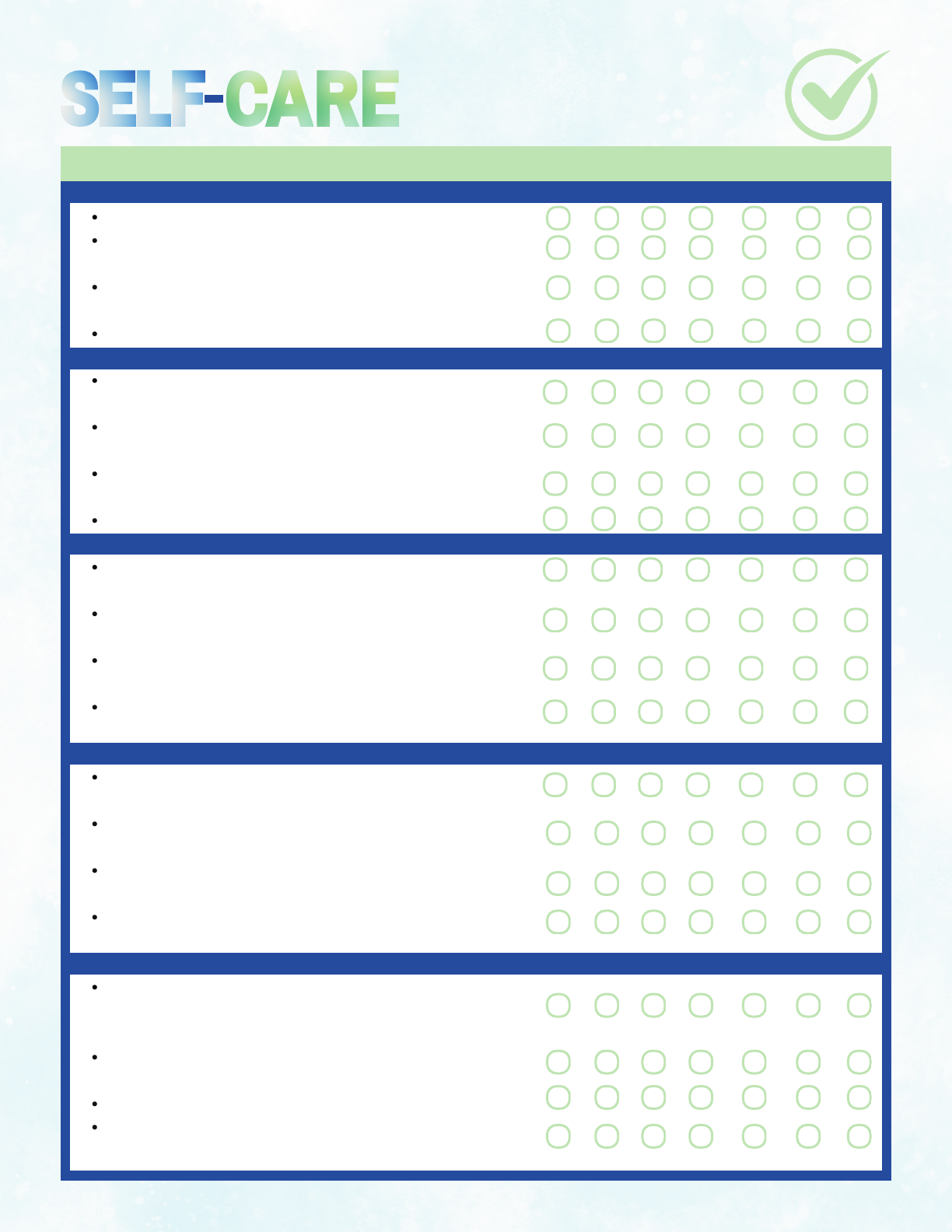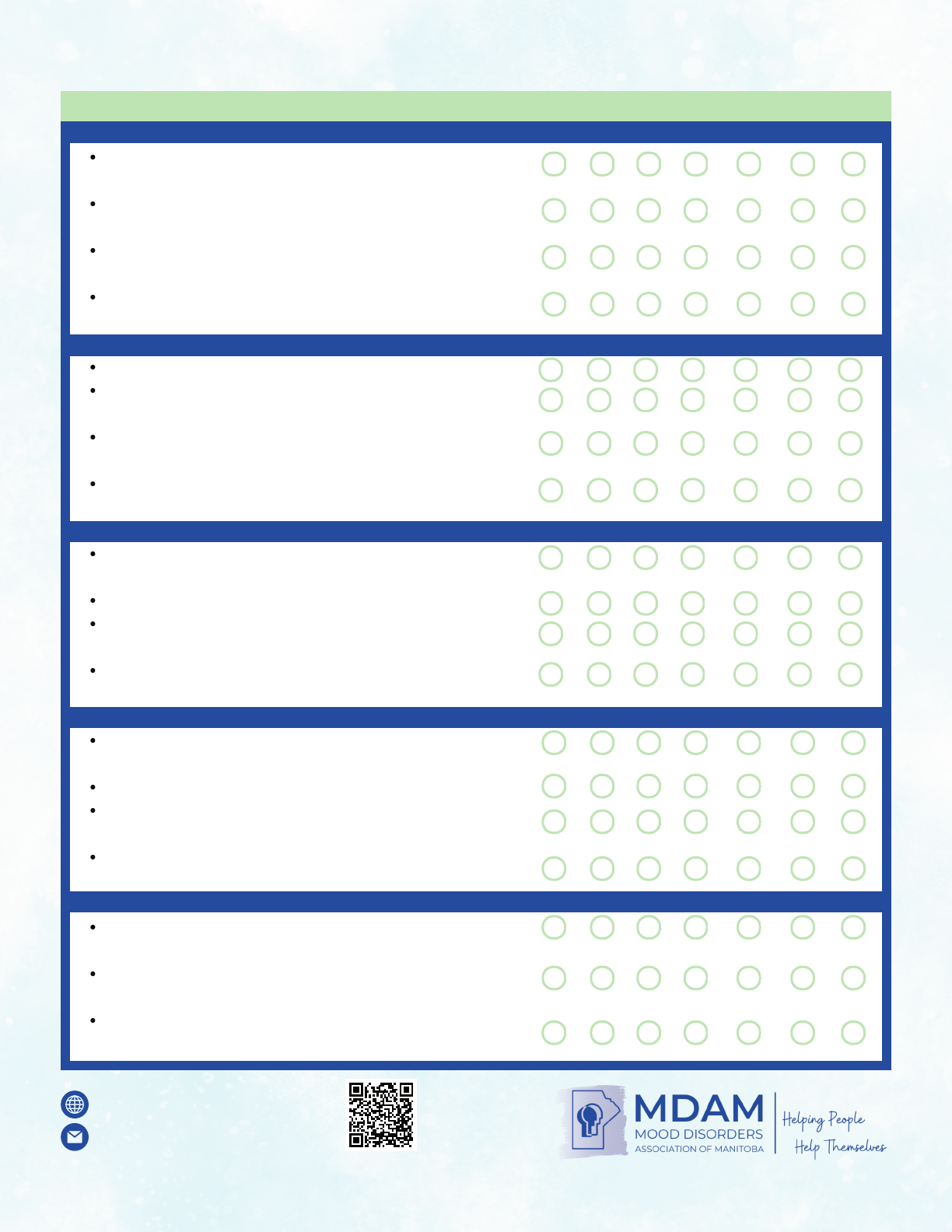
1. Physical Self-Care:
Get adequate sleep (7-9 hours per night).
Maintain a balanced diet, including plenty of fruits,
vegetables, and whole grains.
Engage in regular physical activity (e.g., walking,
yoga, swimming).
Attend regular medical check-ups and screenings.
2. Emotional Self-Care:
Practice mindfulness/meditation to manage
stress.
Express emotions through journaling, art, or
talking to a trusted friend.
Set boundaries in relationships to protect
emotional well-being.
Engage in activities that bring joy and laughter.
3. Social Self-Care:
Cultivate supportive relationships with friends and
family.
Participate in group activities or clubs that align
with your interests.
Seek out social support when needed, whether
through therapy or support groups.
Practice active listening and empathy in your
interactions with others.
4. Intellectual Self-Care:
Stimulate your mind with new hobbies or learning
opportunities.
Read books, articles, or listen to podcasts on topics
that interest you.
Engage in creative activities like writing, painting,
or playing music.
Set and pursue personal goals to foster a sense of
accomplishment.
5. Spiritual Self-Care:
Engage in spiritual practices that resonate with
you, such as prayer, meditation, or attending
religious services.
Spend time in nature to connect with something
larger than yourself.
Reflect on your values and purpose in life.
Practice gratitude and cultivate a sense of
appreciation for the present moment.
Tasks
Su WeTu Th SaFrMo
CHECKLIST

6. Environmental Self-Care:
Create a clutter-free and organized living space
that promotes relaxation.
Spend time in environments that feel calm and
rejuvenated.
Reduce exposure to environmental toxins and
pollutants.
Connect with nature by spending time outdoors
and enjoying natural scenery.
7. Professional Self-Care:
Set realistic work boundaries to prevent burnout.
Take regular breaks throughout the workday to
rest and recharge.
Seek opportunities for professional development
and growth.
Advocate for yourself in the workplace to ensure
your needs are met.
8. Cultural Self-Care:
Engage with cultural practices or traditions that
are meaningful to you.
Celebrate your cultural identity and heritage.
Educate yourself about different cultures and
perspectives.
Participate in cultural events or festivals in your
community.
9. Financial Self-Care:
Create a budget and track your expenses to
manage financial stress.
Set financial goals and take steps to achieve them.
Seek professional advice if needed to improve your
financial situation.
Practice mindful spending and avoid unnecessary
debt.
10. Self-Reflection and Assessment:
Regularly check in with yourself to assess your
mental and emotional well-being.
Identify areas of your life where you may need
additional support or resources.
Adjust your self-care routine as needed based on
changes in your circumstances or priorities.
Tasks
Su WeTu Th SaFrMo
www.moodmb.ca
